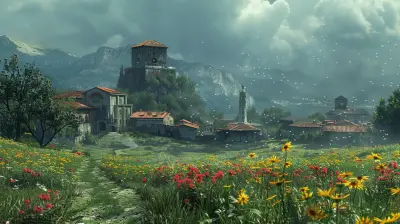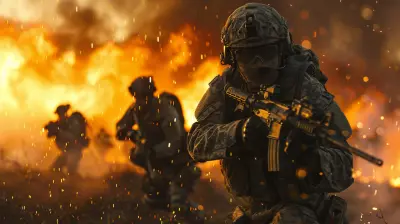The Importance of Player Choice in RPG Endings
2 October 2025
Role-playing games (RPGs) are more than just a pastime. For many gamers, they're virtual journeys—epic adventures where we don armor, sling spells, make friends (and enemies), and ultimately shape the fate of entire worlds. But if there's one thing that truly sets RPGs apart from other game genres, it's this: player choice.
And not just any choice—we're talking about those big, game-defining decisions that shape how your story ends. So, why does this matter so much? Why do we hang on to our keyboards or controllers with sweaty palms, agonizing over a single decision? Let’s dive deep and figure out why player choice in RPG endings is so vital—not just to the player, but to the health and future of the gaming industry itself.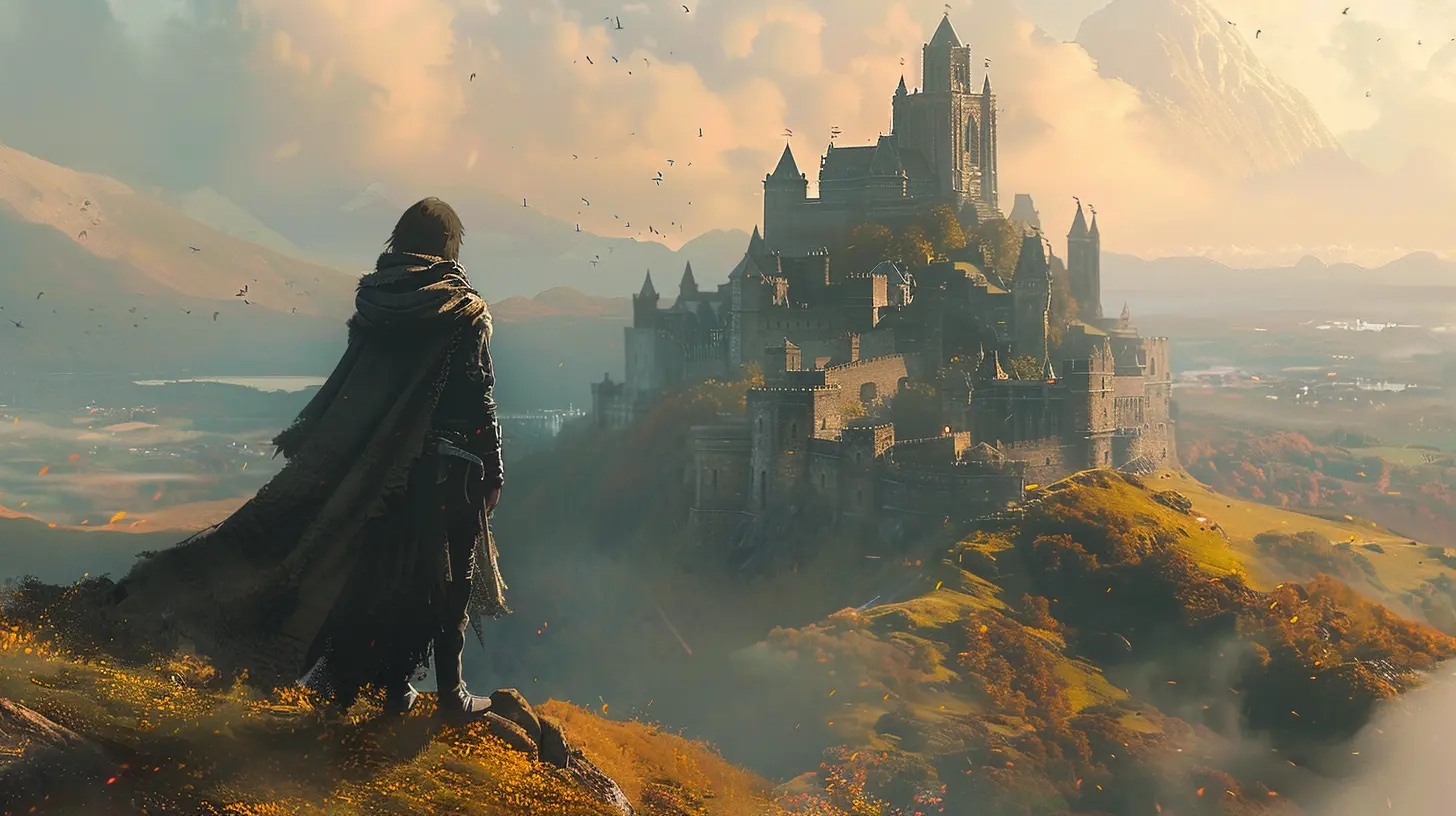
What is Player Choice in RPGs, Really?
Let’s start at the base. Player choice in an RPG isn't just about picking a sword over a bow or deciding whether to talk your way out of a fight. It’s about shaping your character’s destiny. It’s choosing whether to save the kingdom or let it burn, whether to spare a rival or take revenge, whether to become a hero or descend into villainy.And when these choices ripple into the ending? That’s where the magic happens.
A great RPG respects your journey. It acknowledges your decisions and lets them play out in meaningful ways. Are you a noble paladin who tried to do right? Or a ruthless warlock who grasped power no matter the cost? Player choice allows that story to end differently for everyone—because it’s your story.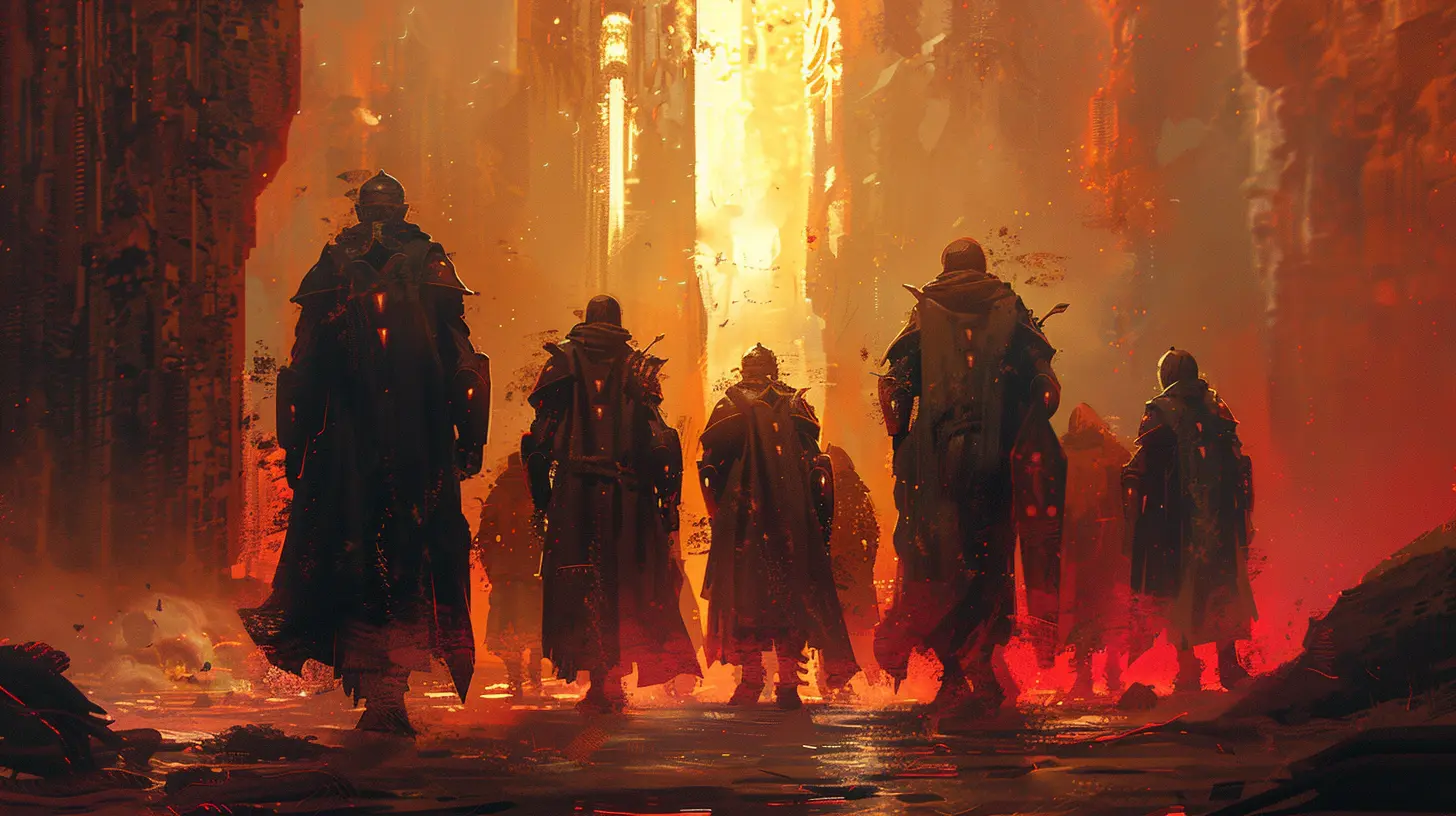
Why Do RPG Endings Matter So Much?
Let’s face it—nobody wants to slog through 80+ hours of gameplay just to be handed a generic, one-size-fits-all ending. That would be like baking a cake for hours only to have someone else eat it and tell you how it tasted. Nah, we want to savor the final slice ourselves, right?The ending of an RPG is more than just a cutscene or a final boss fight: it's the payoff. It tells you that all your effort, time, and careful decision-making meant something. And when that ending reflects your unique path, that's when the game truly becomes yours.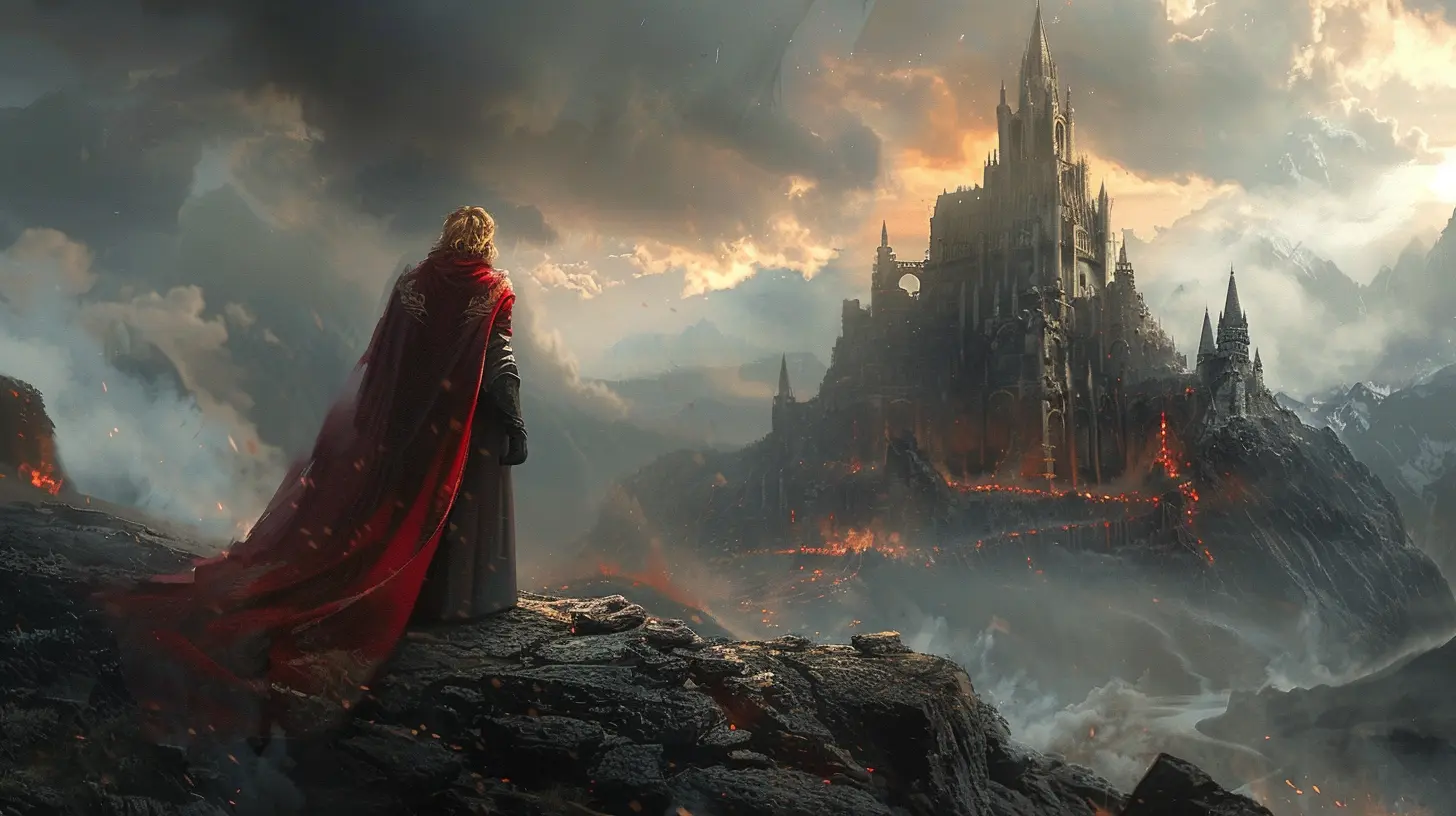
Choice Creates Emotional Investment
Ever cried at the end of a game? Or sat there in silence, staring at the credits, thinking about everything that just happened? That emotional punch comes from feeling like your journey mattered. It doesn’t just come from fancy graphics or intense music—it comes from knowing that the ending you got was a result of everything you did.Take "Mass Effect" for example. Controversial ending aside, the whole trilogy was built on player choice. Every decision—who lived, who died, your romances, your loyalties—felt like it built toward something more. So when the ending finally rolled around, players expected all those decisions to culminate in a unique finale. That emotional expectation? That’s powerful stuff.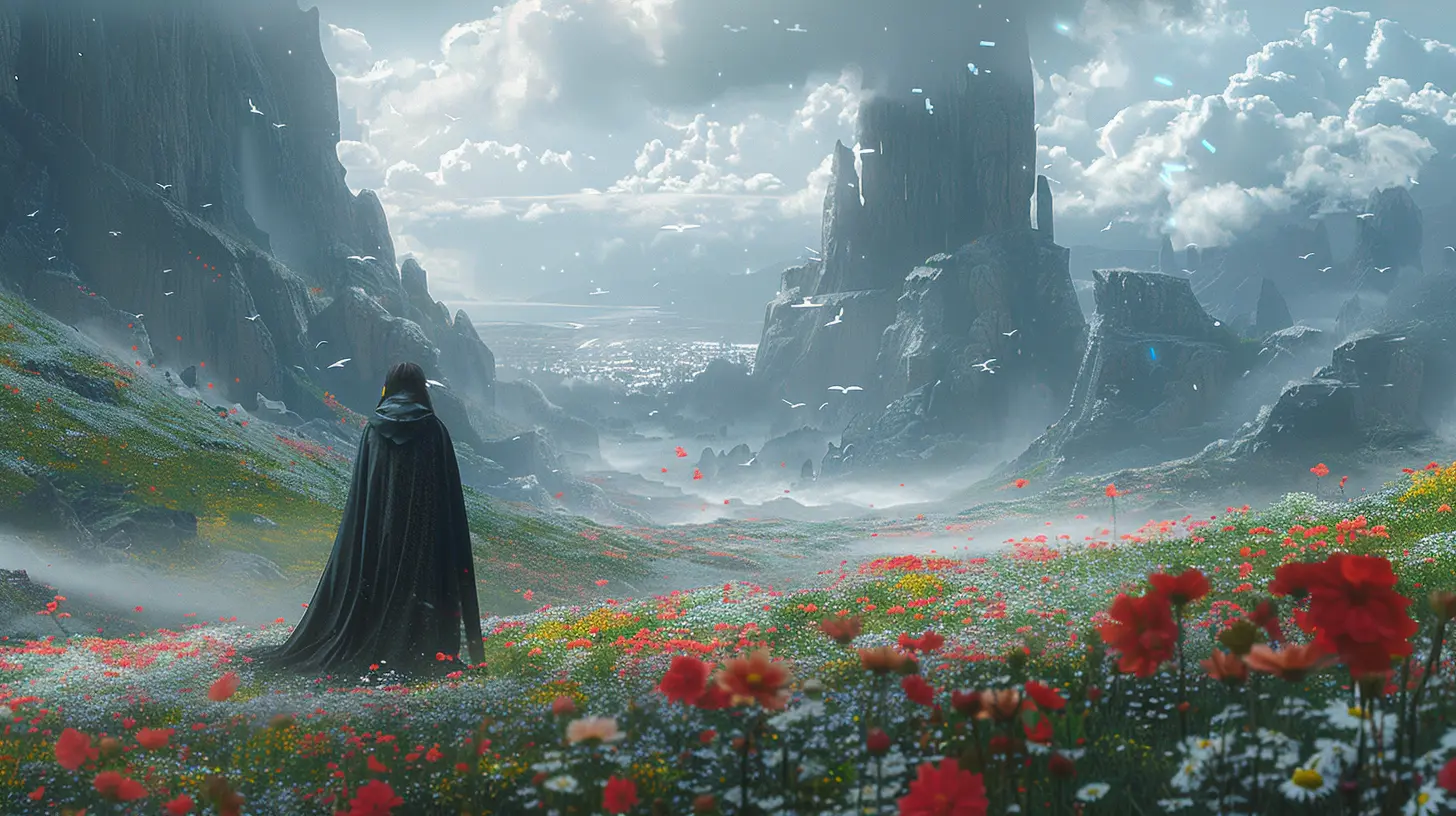
Multiple Endings = Replay Value
Let’s be honest: games aren't cheap. When a game has multiple endings, especially ones based on player choice, it instantly doubles (or even triples) its value. Why? Because we want to see what else could have happened.Maybe in the first run, you were a goody-two-shoes knight. But what if you went full chaotic evil next time? How would the world react? Would your companions still stick around? Would you face different challenges?
Player choice in RPG endings makes you curious about the roads not taken. It nudges you to boot up that new game+ save file and try again. And again. And again.
Meaningful Consequences Make Choices Matter
It’s one thing to be offered choices. It’s another for those choices to actually mean something.Picture this: you're offered a choice to save a character or let them die. You choose to save them… but nothing changes. They vanish from the story two quests later. Pretty underwhelming, right?
Real player choice means real consequences. If you overthrow a corrupt regime, maybe the city thrives—or maybe it descends into chaos without leadership. That’s what makes player decisions feel weighty. When you feel the impact of your choices days (or hours) later in-game, you start to question and reflect. That’s rare. That’s special.
Games like "The Witcher 3" nailed this. Geralt’s choices didn’t just affect his personal story—they shaped entire regions, relationships, and ultimately, the world’s fate. And when you reach that final scene and realize it all came down to a seemingly small decision you made 40 hours ago? That’s next-level storytelling.
Player Choice Elevates Narrative Depth
Let’s put it this way: traditional storytelling is like a rollercoaster—you sit back and enjoy the ride. But RPG storytelling? That’s more like a winding trail through a dense forest. You’ve got a map, but which way you go is up to you.The best RPGs embrace this. They use branching narrative paths and layered moral decisions that often blur the line between right and wrong. There may not be a clear “good” or “bad” ending—just different shades of gray, based on how you played.
That kind of depth keeps you thinking long after the game is over. Did you make the right call? Could you have done better? Did you sacrifice too much in pursuit of your goal?
These aren’t just game questions. They’re human questions. And that connection is what turns a simple RPG into an unforgettable experience.
Choice-Driven Endings Empower the Player
Let’s be real—life doesn’t always give you the power to change outcomes. In daily life, we often feel like cogs in a machine. But in RPGs, we get to be the architect of our world.That empowerment is addictive. In a game, you can be the savior of a dying race or the destroyer of civilizations. You can love without limits, fight for justice, or manipulate everyone for personal gain. And in the end? You get to see how your choices shape everything.
That agency sticks with you. It builds confidence. And sometimes, it even teaches you a thing or two about yourself.
The Pitfalls of False Choices
Okay, time for a quick reality check. Not all games get this right. There's nothing more frustrating than spending hours making decisions only to find out the ending barely changes. It’s like being promised a choose-your-own-adventure book but realizing every path leads to the same ending.Gamers aren’t fools. We notice when our choices are just window dressing. And it hurts the experience.
For RPG developers, the challenge is real. Designing multiple endings takes time, resources, and vision. But when done right, the payoff is worth it—not just for the players, but for a game's legacy.
Iconic Examples of Player-Driven Endings
Let’s look at a few games that got it right (or, at least, mostly right):1. Dragon Age: Origins
Your choices—including which companion becomes king—shape not only the ending but the future of an entire nation.2. Fallout: New Vegas
Virtually every choice you make influences the power dynamics of the Mojave. You choose who rules and how the world evolves post-apocalypse.3. Undertale
One of the most unique experiences where your choice to kill or spare enemies completely alters the game’s tone, outcome, and even genre.4. Detroit: Become Human
Every decision branches into drastically different endings. Few games have visualized consequence and divergence quite like this.So, What Makes a Good RPG Ending?
It’s not about flashy cutscenes or final boss fights. A great RPG ending is deeply personal. It acknowledges your journey, your sacrifices, and your moral compass. It doesn’t need to be “happy” or “sad”—just earned.It should say, “This is the world you created. Own it.”
That’s why player choice matters. Not just for storytelling, but for giving players a sense of ownership, consequence, and deep emotional resonance.
Final Thoughts: Your Choices, Your Legacy
RPGs are more than just games. They’re interactive canvases. And your choices? They’re the brushstrokes. Every decision leaves a mark. Every consequence tells a story.A well-earned ending makes the entire journey worthwhile. It wraps up your adventures not just with closure, but with meaning. It whispers, “You were here. You changed things.”
And isn’t that what we all crave in stories—to matter?
So next time you’re faced with a seemingly small choice—like whether or not to lie to a companion or save a town—think about the ripple effect. That little decision might just define your entire ending.
And that, right there, is why we keep coming back for more.
all images in this post were generated using AI tools
Category:
Rpg GamesAuthor:

Leif Coleman
Discussion
rate this article
1 comments
Kendall Chavez
This article astutely highlights how player choice enriches RPG endings, allowing players to invest emotionally in their narratives. However, it’s crucial to recognize that meaningful choices should impact gameplay genuinely, rather than serve as mere illusions. True agency fosters deeper connections and more memorable experiences.
October 8, 2025 at 3:07 AM

Leif Coleman
Thank you for your insightful comment! I completely agree that true agency and genuine impact of player choices are essential for creating memorable and emotionally engaging RPG experiences.

